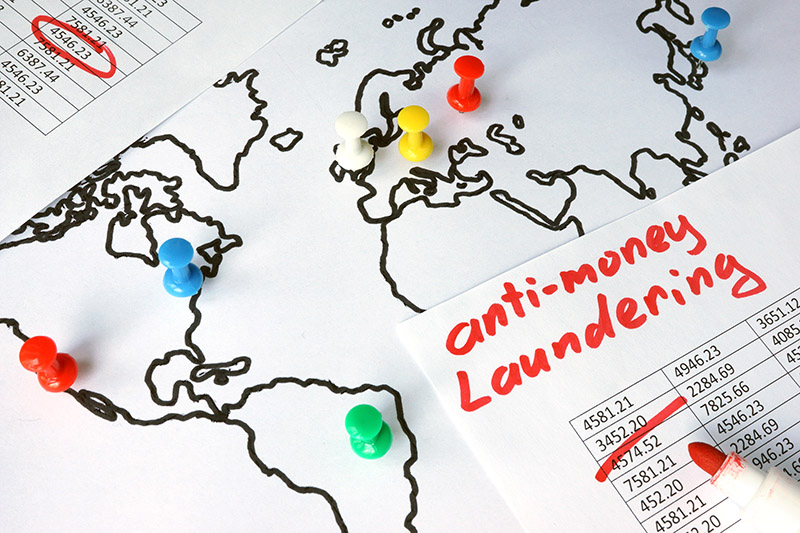Light & Wonder, a prominent gaming supplier, has initiated its venture into the Argentine market through a strategic partnership with Betsson Group. This collaboration has enabled Light & Wonder to launch its portfolio in Argentina, marking a significant milestone.
Players in the Province of Buenos Aires can now enjoy acclaimed first-party games like 88 Fortunes on Betsson’s platform, betsson.bet.ar. The alliance with Betsson is not just about market expansion; it aims to enhance the gaming experience for Argentine players, promising a blend of entertainment and quality gaming content.
Strategic Partnerships and Market Growth
The launch in Argentina is part of a broader strategy, following an extended agreement between Light & Wonder and Betsson to bring the supplier’s content to new regulated markets globally. Tatiana García Barrenechea, Light & Wonder’s Commercial Director for LATAM, highlighted the importance of this launch as a key step in their growing relationship, emphasizing the commitment to providing engaging content for the Argentine audience.
Betsson’s Head of Supplier Relations, Laura Peretta, praised Light & Wonder’s reliability and expressed enthusiasm for the partnership’s potential to deliver exceptional gaming experiences in Argentina.
Betsson’s Italian Market Breakthrough
Parallel to its Argentine expansion, Betsson has also ventured into the Italian market, reinforcing its global presence. The launch of Betsson.it signifies a strategic move to solidify Betsson’s brand in Italy, where it operates alongside StarCasino.
Betsson.it aims to offer a comprehensive gaming experience, including sports betting, slots, table games, and live casino offerings, catering to a diverse Italian audience. Ronni Hartvig, Betsson’s CCO, underscored the strategic importance of Italy in Betsson’s growth plan and the goal to become a leading sports betting operator in the country.
Future Prospects and Global Expansion
Betsson’s recent activities, including the partnerships with Light & Wonder and Relax Gaming, underscore its ambition for global expansion and diversification. The company’s financial success, highlighted by a significant revenue increase in the last quarter, reflects the strategic impact of these partnerships and market expansions.
With a focus on delivering quality and engaging content, both Betsson and Light & Wonder are set to enhance their offerings, promising exciting developments for players in Argentina, Italy, and beyond.
Welcome Bonus and Free Chip available at Vegas Casino Online
On February 23, 2024, the Swedish Government proposed a ban on the use of credit cards for gambling activities. This proposal was introduced to mitigate the financial challenges and indebtedness of credit card gambling. Recognizing the potential risks, the Ministry of Finance of Sweden forwarded a comprehensive memorandum advocating for this ban. It’s a step that mirrors actions taken in other countries like the UK, Ireland, Australia, and Norway, where similar restrictions have already been implemented.
BOS’s Stance and Arguments Against the Ban
In sharp contrast to the government’s position, the Branschföreningen för Onlinespel (BOS), representing the Swedish online gambling sector, has vocally opposed this ban. Gustaf Hoffstedt, the Secretary-General of BOS, has been particularly critical. He argues that the proposal disregards the expertise and findings of the government’s own investigations, which previously suggested that there were “insufficient reasons” for such a ban. Hoffstedt also points out the inconsistency in governmental policy, noting that no similar ban is proposed for credit card purchases of alcoholic beverages, which, in Sweden, are sold through a government-operated monopoly.
Furthermore, BOS has raised concerns about the competitive advantage this ban would give to unlicensed gambling markets. Currently, unlicensed operators hold a significant portion of the market share in the online casino vertical in Sweden. BOS fears that the ban could exacerbate this issue, potentially leading to unlicensed gambling overtaking licensed operators by 2024.
Technical and Practical Challenges in Implementing the Ban
The proposed ban faces opposition from industry bodies and practical and technical challenges. BOS has highlighted potential difficulties with banking providers, questioning the feasibility of effectively implementing such a ban. These concerns were also reflected in the government’s Over-indebtedness Inquiry conducted last year, which cast doubts over the practicality of enforcing a prohibition on credit card gambling.
Player’s Perspective: Analyzing the Impact of the Proposed Ban
From a player’s perspective, the proposed ban presents a complex situation. On one hand, the ban aims to safeguard consumers from the risks of over-indebtedness and financial instability associated with credit card gambling. It represents a move towards responsible gambling practices and consumer protection. On the other hand, players might view this as a restrictive measure that limits their freedom of choice in how they engage with gambling services. Additionally, the potential shift towards unlicensed gambling platforms poses significant risks. These platforms often lack the regulatory oversight and consumer protection measures found in licensed gambling services, potentially exposing players to unfair practices and increased financial risks.
In summary, while the Swedish Government’s proposal intends to protect consumers, it raises several contentious issues. The industry’s opposition, led by BOS, underscores the complexities of regulating the gambling sector in a way that balances consumer protection with market realities. Players are left navigating a landscape where their choices might be limited, yet the alternatives could potentially expose them to greater risks.
Federal Regulations Update
The US Department of the Interior (DOI) has revised federal regulations to align with Florida’s Indian gaming compacts. This move is intended to enhance the clarity and transparency of these compacts nationwide. The revisions allow tribes to provide gambling services beyond their reservations, easing the process of securing compact approvals. This new framework, mirroring Florida’s “hub-and-spoke” betting model used by the Seminole Tribe, aims to streamline the negotiation process between tribes and states. These changes, effective 30 days post-publication in the Federal Register, are expected to significantly impact tribal economic development.
Florida-Style Compact
The DOI’s adaptation of Florida’s gaming compact model comes after the Seminole Tribe’s mobile gaming venture and legal challenges. The Supreme Court’s 2023 decision allowed the Seminole Tribe to relaunch its sports betting operations, granting them a de facto monopoly in Florida. This model, where bets placed off-reservation are routed through tribal servers, has set a precedent for the DOI’s regulatory update. The Florida compact’s success in fostering tribal gaming while maintaining state oversight serves as a blueprint for the revised federal guidelines.
Impact on Tribal Sovereignty
The year 2023 marked a pivotal period for tribal nations, emphasizing the importance of sovereignty in the United States. With state governments seeking greater control over Indian territories, tribes are actively defending their exclusive casino and gaming rights. Despite the robust performance of tribal gaming, with record revenue increases reported by the National Indian Gaming Commission, there remains a heightened vigilance among tribal leaders against potential encroachments by state authorities and commercial gaming interests.
Future Outlook
The DOI’s regulatory update signifies a proactive approach to supporting tribal gaming, acknowledging its role in economic development. By adopting a model proven successful in Florida, the DOI aims to offer clearer guidelines and streamline compact negotiations. This initiative, part of the Biden-Harris administration’s commitment to Indian country, is expected to provide stability and growth opportunities for tribal gaming, while carefully balancing state interests and tribal sovereignty. The long-term impact of these changes will be closely monitored by both tribal entities and state governments.
Analysis: Implications of the Regulatory Update
The update in federal regulations by the US Department of the Interior, aligning with Florida’s model, could be seen as a double-edged sword for tribal gaming. On one hand, it potentially opens up new avenues for economic development within tribal nations, leveraging the success of the “hub-and-spoke” model. This model, which has been beneficial for the Seminole Tribe, offers a blueprint for other tribes to expand their gaming operations beyond traditional boundaries. On the other hand, there’s a risk that this approach might dilute the essence of tribal sovereignty. Allowing gambling operations outside of reservations could lead to increased state intervention in what has traditionally been a tribal affair. Furthermore, the adaptation of a singular state’s model, albeit successful, might not universally fit the unique circumstances and needs of all tribal nations. This regulatory shift, while promising in terms of economic prospects, raises important questions about the preservation of tribal autonomy and the true cost of economic expansion.
DraftKings, already a prominent name in the realm of sports betting and daily fantasy sports, has taken a leap by acquiring Jackpocket, a leader in the U.S. digital lottery market. The deal, valued at around $750 million, represents a strategic diversification for DraftKings into the digital lottery space. Notably, the payment structure for this acquisition comprises 55% in cash and 45% in the form of DraftKings’ common stock.
This financial maneuver was executed without necessitating an additional capital raise from DraftKings, indicating a robust financial position. The acquisition is poised to enhance DraftKings’ product range and customer experience, tapping into the synergies between sports betting and digital lottery services.
Financial Performance and Position in the Market
Despite an initial dip in stock value following the announcement, DraftKings demonstrated resilience with a swift recovery in its share price. The company’s financial health was highlighted in its Q4 2023 report, showing a significant 44% year-over-year increase in revenue, reaching $1.23 billion, albeit slightly below the analysts’ forecast. The report also indicated a reduction in quarterly losses compared to the same period in the previous year.
These financial outcomes are attributed to DraftKings’ focused strategies on customer acquisition, retention, and engagement, underpinned by a consistent drive towards product innovation and effective marketing strategies. The company’s successful positioning is further evidenced by its leading status in combined Online Sports Betting and iGaming Gross Gaming Revenue in the U.S. for the third quarter of 2023.
Prospects and Potential Impact of the Jackpocket Acquisition
The integration of Jackpocket into DraftKings’ portfolio will significantly enhance the company’s financial metrics in the coming years. Projections indicate a substantial increase in revenue and Adjusted EBITDA by the years 2026 and 2028, with anticipations of adding $450 million in incremental revenue and $150 million in incremental Adjusted EBITDA by the year 2028. DraftKings’ leadership, particularly CEO Jason Robins, emphasizes the critical role of innovation and operational efficiency in capturing a larger share of the rapidly evolving U.S. online gaming market.
The closure of the Jackpocket acquisition, subject to regulatory approvals, is slated for the latter half of 2024. This strategic move not only solidifies DraftKings’ position in the industry but also underscores its commitment to broadening and enhancing its offerings in the dynamic world of digital gaming and betting.






